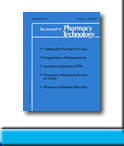 |
 |
LOSARTAN IN THE
MANAGEMENT OF HEART FAILURE DUE TO SYSTOLIC DYSFUNCTION
Binh N Tran and
John Graham
To request full article click here.
OBJECTIVE: To investigate the usefulness of the angiotensin II subtype 1 receptor blocker losartan in relation with angiotensin-converting enzyme (ACE) inhibitors in the treatment of heart failure due to systolic dysfunction.
DATA SOURCES: A literature search of the MEDLINE and Micromedex databases from 1990 to 1997 was performed. Tertiary references and relevant current journal articles were reviewed; whenever appropriate, primary articles were listed for completeness.
STUDY SELECTION AND DATA EXTRACTION: All pertinent studies in animals and humans were considered for evaluation. Studies emphasizing the adverse effects of losartan, especially cough and angioedema, were also included.
DATA SYNTHESIS: Preclinical studies in rat and sheep models dating from 10 years ago were presented. Five main studies in humans from the last 5 years were reviewed. In the first study, a single dose of losartan resulted in dose-dependent vasodilation. In the second study, the largest reduction of pulmonary capillary wedge pressure was 6.3 mm Hg with losartan 50 mg. In the third study, exercise capacity (treadmill time and 6-min walk) was recorded, showing no differences between losartan 25 and 50 mg/d and enalapril 20 mg/d. The fourth study evaluated the effect of losartan in 736 patients in the US and overseas; no improvement in exercise time was found, but fewer deaths and hospitalizations due to heart failure were noted. The fifth study, the Evaluation of Losartan in the Elderly (ELITE) study, compared the persistent increase in serum creatinine (> 0.3 mg/dL) between patients taking losartan 12.5–50 mg/d and patients taking captopril 6.25–150 mg/d. Results of the multination, large (722 patients) study showed the same increase in serum creatinine for both groups, but a decrease in all-cause mortality in patients taking losartan (4.8% vs. 8.7%). Fewer patients in the losartan group (18.5%) discontinued therapy than in the captopril group (30%); none in the losartan group reported cough, compared with 14 patients in the captopril group. Losartan was shown to improve cardiovascular hemodynamics, to blunt neurohormonal activation, and to improve exercise tolerance to the same extent as ACE inhibitors.
CONCLUSIONS: Losartan may be prescribed for patients who cannot tolerate ACE inhibitors because of coughing, but it is safer to avoid its use in patients with a history of angioedema. Although reduced mortality is not the primary end point of the ELITE study, the mortality advantage of losartan makes this drug an attractive alternative to ACE inhibitors for heart failure due to systolic dysfunction.
J Pharm Technol 1998;14:158-166.
ACPE Universal Program Number: 407-000-98-053-H01
To request full article click here.
.
|
|
|
||
|

